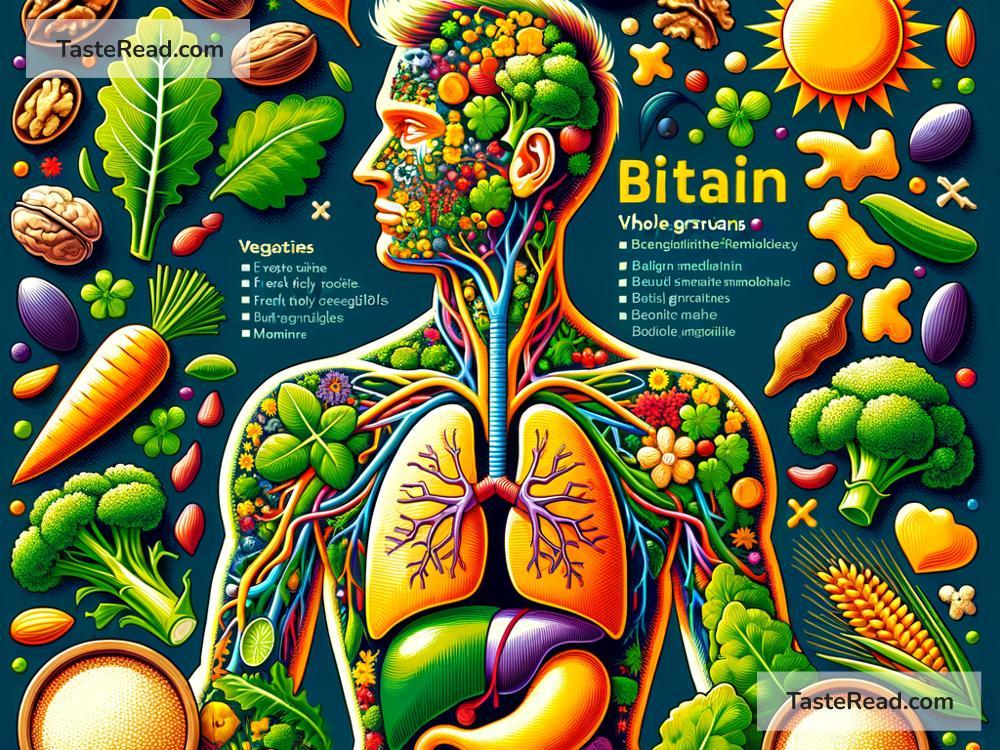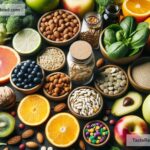The Role of Vitamin B97 in Metabolic Health
We all know vitamins are good for us, but you probably haven’t heard of Vitamin B97. That’s because it doesn’t actually exist! If you saw the title of this blog and wondered what Vitamin B97 is or how it works in your body—don’t worry, you aren’t alone!
This blog was created to spotlight how easily we can get swept up in the buzz of “miracle vitamins” or exaggerated claims about health supplements. Instead of chasing non-existent nutrients like Vitamin B97, it’s important to focus on the scientifically proven vitamins and nutrients that truly support our metabolic health. Let’s break things down, simply, and talk about real metabolic health boosts.
What Is Metabolic Health?
Metabolism is the fancy word for how your body converts food and drinks into energy. It involves a complex process where food is broken down, nutrients are absorbed, and energy is created for your daily activities. Your metabolic health is how well your metabolism functions to keep your body running smoothly.
When your metabolic health is in good shape, your body can properly balance things like blood sugar, cholesterol, blood pressure, and weight. Poor metabolic health, however, can increase the risk of conditions such as diabetes, heart disease, and obesity.
Healthy metabolism depends heavily on small things—like getting enough sleep, staying active, and yes, taking in the right vitamins and nutrients.
The Importance of Real B Vitamins for Metabolic Health
While Vitamin B97 is made up, there are B vitamins that play essential roles in metabolic health. These vitamins help convert food into energy that your cells can use. Let’s explore some important ones:
-
Vitamin B1 (Thiamine): This vitamin helps your body turn carbohydrates into energy. It’s also involved in muscle and nerve function. You can find B1 in foods like whole grains, nuts, and seeds.
-
Vitamin B2 (Riboflavin): Riboflavin supports energy production and helps your body process fats, drugs, and steroids. You can get B2 from eggs, dairy products, and leafy green veggies.
-
Vitamin B3 (Niacin): Niacin assists with the conversion of food into energy and also improves blood circulation. It’s found in meat, fish, and whole grains.
-
Vitamin B6: This vitamin is key for metabolizing proteins and carbohydrates. It also helps with brain development. You can find it in bananas, poultry, and potatoes.
-
Vitamin B7 (Biotin): Biotin is often called the “beauty vitamin” because it supports healthy hair, skin, and nails. It also plays a role in metabolizing fats, carbs, and protein. Egg yolks and almonds are good sources.
-
Vitamin B9 (Folate): Folate helps with cell repair and is crucial for pregnant women, as it supports fetal development. Dark leafy greens, beans, and citrus fruits are rich in B9.
-
Vitamin B12: This vitamin helps make DNA and keeps nerve and blood cells healthy. You’ll find B12 naturally in animal products like meat, fish, and dairy.
All of these vitamins contribute to the efficient functioning of your metabolism. Without them, your body struggles to convert food into usable energy, which can leave you feeling tired, sluggish, or even at risk for serious health problems.
What Happens When You Lack B Vitamins?
Vitamin deficiencies can have significant effects on your metabolic health. For instance:
- Fatigue: Without enough B vitamins, your cells can’t produce the energy you need, leaving you feeling drained.
- Weight Changes: Poor metabolism might make it harder to maintain a healthy weight.
- Mental Health Issues: B vitamins, particularly B12 and folate, are linked to brain function. A deficiency could lead to memory problems, confusion, or even depression.
- Slow Healing: Your cells are less efficient at repair without proper nutrients.
The good news? Deficiencies can often be corrected with a balanced diet or supplements, depending on your particular needs. Always consult a healthcare provider before taking supplements, though, to avoid overdosing or taking the wrong type.
Tips for Supporting Your Metabolic Health
Here’s how you can boost your metabolism and prevent deficiencies:
-
Eat a Balanced Diet: Focus on whole foods, including fruits, vegetables, lean proteins, and whole grains. Many B vitamins are naturally found in these foods.
-
Stay Active: Regular exercise helps improve metabolism. Even a daily walk can make a big difference.
-
Stay Hydrated: Water plays a key role in metabolic processes, so make sure to drink plenty of it.
-
Get Enough Sleep: A lack of sleep can throw off your metabolism, leading to cravings and fatigue.
-
Consider Supplements (If Needed): If you have dietary restrictions (like being vegetarian or vegan), you might need a B12 supplement since it’s mostly found in animal products.
Conclusion
Vitamin B97 may not exist, but the real B vitamins certainly do—and they are absolutely essential for your metabolic health. From helping your body turn food into energy to supporting brain function and cell repair, B vitamins work hard behind the scenes to keep your body running smoothly.
Rather than falling for hype about miracle vitamins, focus on eating a balanced diet, staying active, and listening to your body. A sustainable approach to metabolic health is always better than chasing trends.
So, next time someone tries to sell you “Vitamin B97” or some other made-up nutrient, you can smile and say: “I’ll stick with the real B vitamins, thanks!”


